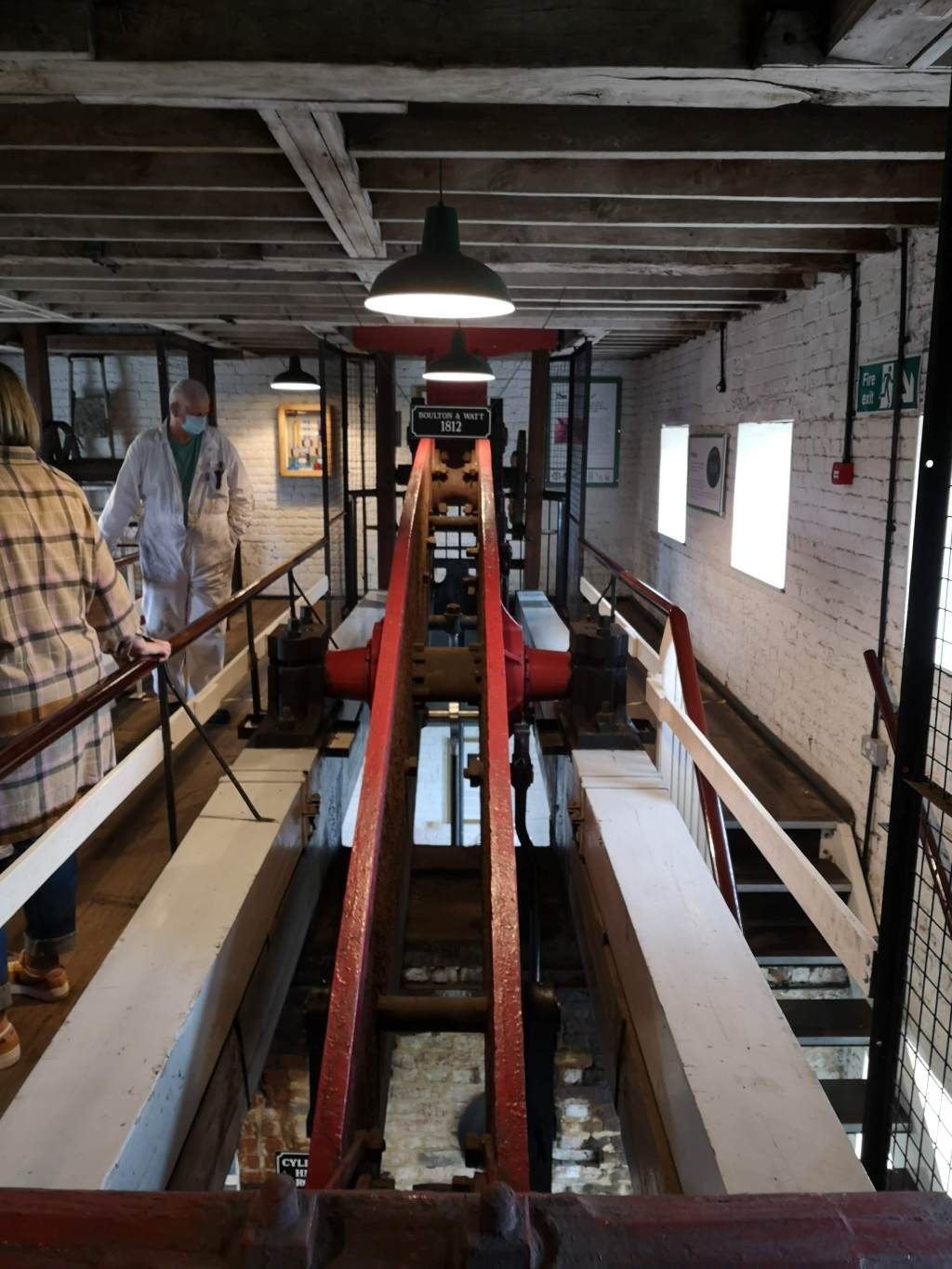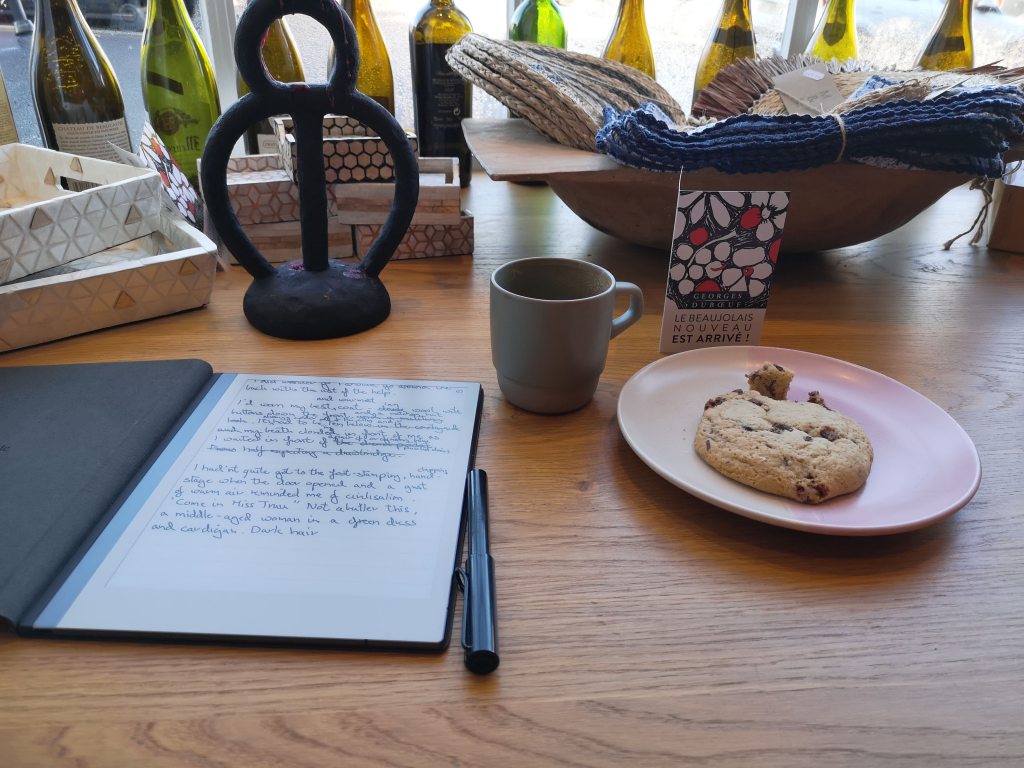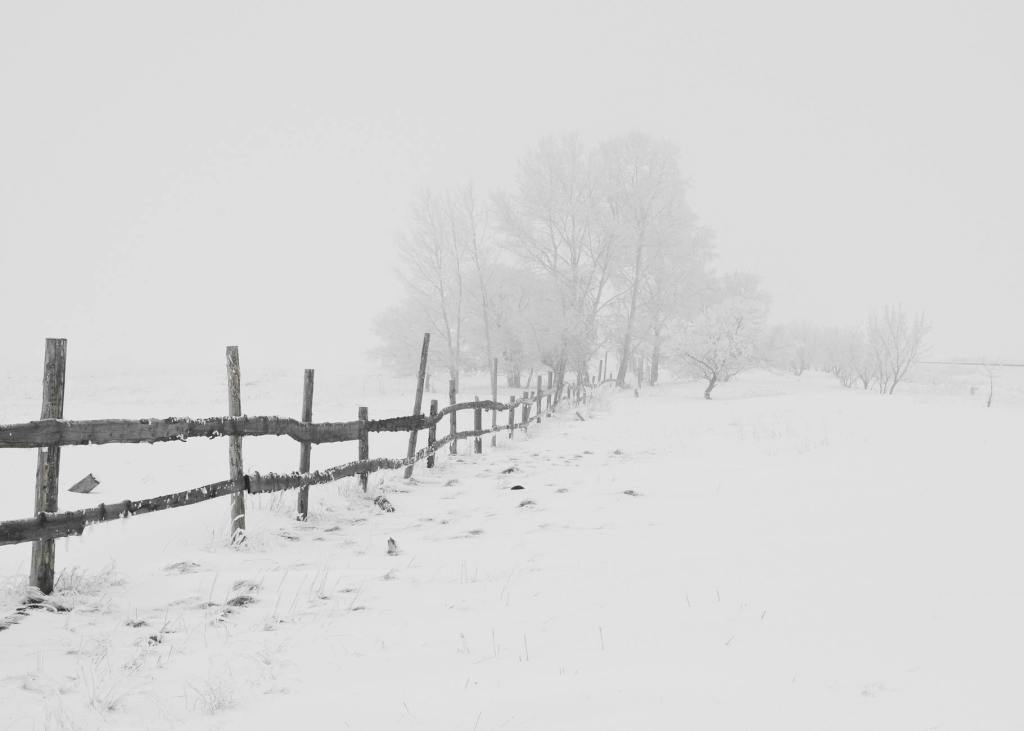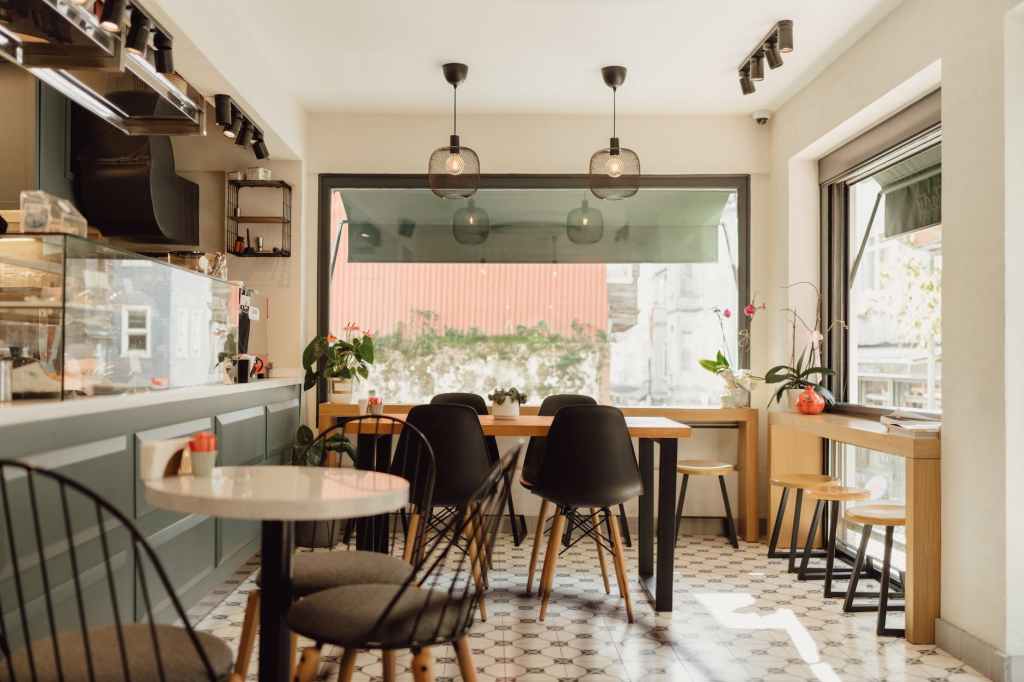Mr Peterson closed the village shop promptly at 5:30 pm, glancing up at the lintel over the door where dusty gold lettering said J.G. Swift Est. 1851. To his right, a framed sepia photo in the shop window showed Joseph Swift standing on the same step, an apron around his waist, striped shirt, bow tie and bowler hat, glowing with Victorian enterprise. Beside him, a boy in Sunday best and cap suitable for the occasion, dwarfed by a huge black butcher’s bike. Back when no lady carried shopping and you paid by account. Great grandfather, Sam Peterson. The clever village lad who’d watched the railway come and the world change.
Like home delivery, the shop’s glory days were firmly in the past. It struggled on, selling a little of everything now, each shelf a shrine—offerings to the ghosts of the butcher and greengrocer, hardware store, and bakery. Half the village was second homeowners who bought milk on a Saturday morning still in their pyjamas and everything else online. Not that it would matter in the end. “Best get on,” he said quietly to the picture as he put his cap on and turned away from the village green, the last remaining Pub, whistling quietly as he walked up Canal Lane and home.
By the time the church clock struck six, Mr Peterson had had a cup of tea, the ham roll he’d brought from the shop that needed eating and was at his back door, dressed in faded brown overalls. Behind him, a faint brick path threaded between blossom-hung trees towards the faint sound of water. Confident as a postman on his route, he set off down to the back wall, where quince and pears still hung, espaliered on wires and basked in the setting sun. A little untidy now – he did his best, but Mr Peterson was no gardener – that had been his Mary. Then he was through the flaking wrought-iron gate and onto the island of ground between the garden and the old canal, surrounded by hedges back then, a thicket of trees now, and the old Shed standing silent in the middle.
It looked like a church. Dressed stone, in a severe, workmanlike cut; something from a non-conformist sect or a Mason’s Hall. Easy to imagine an earlier age when the sun shone through the clerestory windows far above his head onto plain white walls and well-made wood. Mr Peterson walked onto what had once been a cart-wide brick skirt running around the walls, now mossy and overgrown. Past the nave, past heavy oak doors twice his height, bolted shut, the handles bound together with a rusty padlocked chain, and across them both, a faded red-on-white sign: “Unsafe Building, danger of falling Masonry. Do not enter.” He turned the corner, past weathered baulks of wood leaning like old men against the wall, unlocked a small green door hidden behind a corrugated iron sheet and slipped inside.
The windows had been painted over during the war for the blackout, so Mr Peterson turned on the lights one by one and then stepped into the hall where the two colossal beam engines lay sleeping. He called them Father and Son.
They filled the Hall from top to bottom and side to side. Above his head, the enormous wooden beam of the Father was poised just under the roof. Forty feet long and pivoting in the middle like a giant’s seesaw: one end attached to the piston rod from a steam engine that took up most of the floor, the other to the chain pump that took up the rest. It could pull a ton of water from the river into the canal at each stroke. Mr Peterson picked up his checklist from its hook, got the oil from its shelf and climbed up the circular steps to the first floor.
The checklist was his grandfather’s, who’d followed his father into the engineering trade, risen to the top, and, like any good captain, turned off the lights above two cold engines that last time a few years after the war. The canal finally crushed between road and rail, hammer and anvil, to be abandoned and forgotten. Who had saved every shred of paper and plan he could find and then added two shelves of notebooks about the engines in his care, safe back at the house. Who, as far as anyone knew, had retired to tend his garden on the other side of the wall. And the engines? As far as anyone knew, they’d been broken up and sold for scrap like all the others. Mr Peterson’s father, with a family to keep, bought the shop. How he spent his evenings was his own business.
Mr Peterson ticked off another item and climbed up another level to the beam, looking for cracks. It was on the list, but the wood was harder now than when it had been installed two centuries earlier, brought up on the new canal through the stiff, freshly painted locks accompanied by a small army of blacksmiths, masons and parts. An engine, more born than built. Each rough piece fettled, bent, and fitted like a suit. Bolts made by hand in a lean-to forge. Back when an inch here or there was good enough, and your eyes told you something was straight—the technology of cathedrals. It’d been running for fifty years when his great-grandfather apprenticed to learn its secrets.
Mr Peterson climbed down, turned to a new page as he stepped across the narrow gap to the Son and carried on: oil, tap, check, tick.
The year Joseph Swift opened his shop, a second engine had been added, a marvel of beautiful Victorian utility. The beam was cast iron, six tonnes, brought on a train because, by now, the railway owned the canal, bought for a song. It was all in the ledgers and notes. How the surveyors had measured, and plans had been drawn, and a year later, a procession of wooden crates had accompanied the great beam. Engineers with it this time, not blacksmiths. Young men in dark suits with slide rules in their pockets, acolytes of the new mechanics. Assembling a machine made by other machines. All cast iron and steel, each piece carefully labelled on a plan, each bolt identical according to Whitworth’s design.
Mr Peterson slotted the manual key into the flywheel as if he were opening a lock gate. He rotated each engine a little each time to stop them sticking in one place. Thirty turns later, the beam far above had dipped six inches smooth as silk. List completed, he poured himself a cup of tea from the flask he’d brought, sitting on the stairs. Beside him, red and green painted iron flowers bloomed from a green iron vine twined around white iron columns corniced and fluted like a temple. It always made him smile. He’d read all his grandfather’s books, and though he plainly loved both engines, the Son had been his favourite.
Sitting there, he always wondered what it would have been like when they were both running. On one side, the Father, like an old farmer at an Inn. Sitting by the fire, red-faced and laughing, steam hissing and billowing, the clang of iron like a hand slapped on a leg as the joke was made. And the Son, the quiet, industrious lad, good at numbers with a shy smile. He’d only known them like this, cold and silent. Even if he had the ten tons of coal to start them, the chimney was long gone.
Nearly eighty years, they’d come here in secret, three generations. Holding on to the knowledge and the examples, Father and Son. Museum and schoolroom both. And he’d not really believed in the beginning either, treated it like an odd hobby, like a man with an old-fashioned car – tinkering away in his garage. Doing his bit, carrying on. Never thinking what he was doing was important in any way.
Then he’d dreamed, too, just like his father had. And he’d seen the Fall. He’d seen what was about to happen. And well, after that, a man who knew what he knew and had what he had. Well, he’d be King, wouldn’t he?







Leave a comment